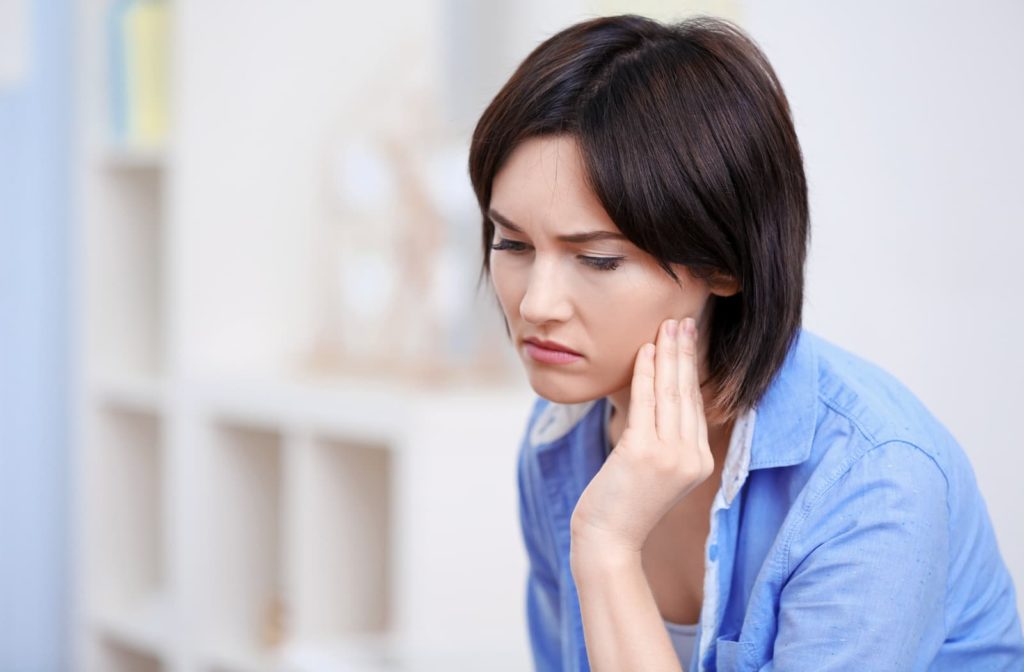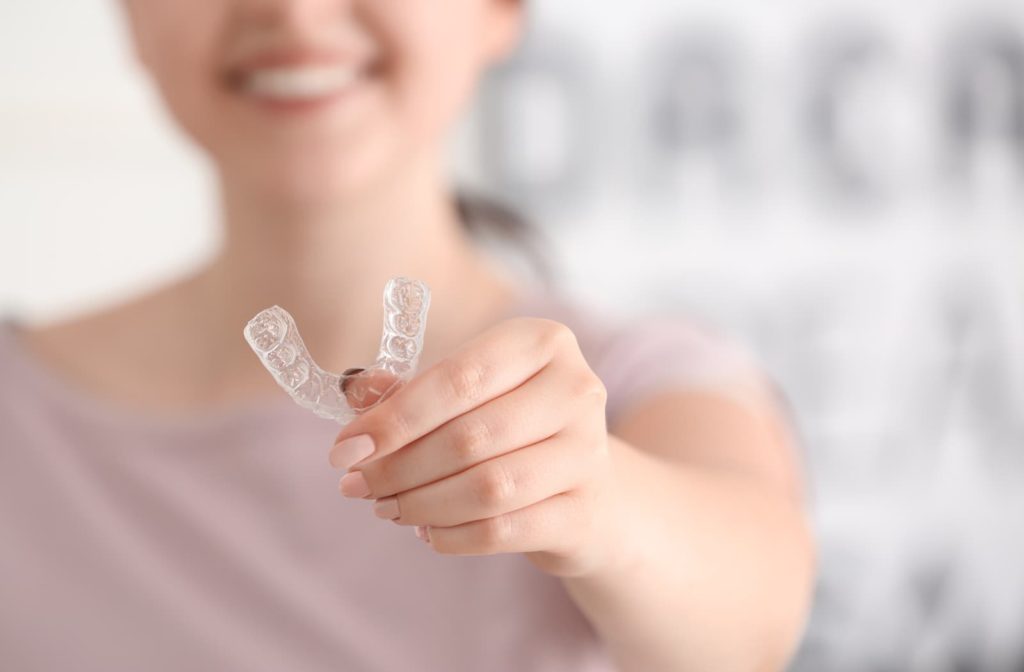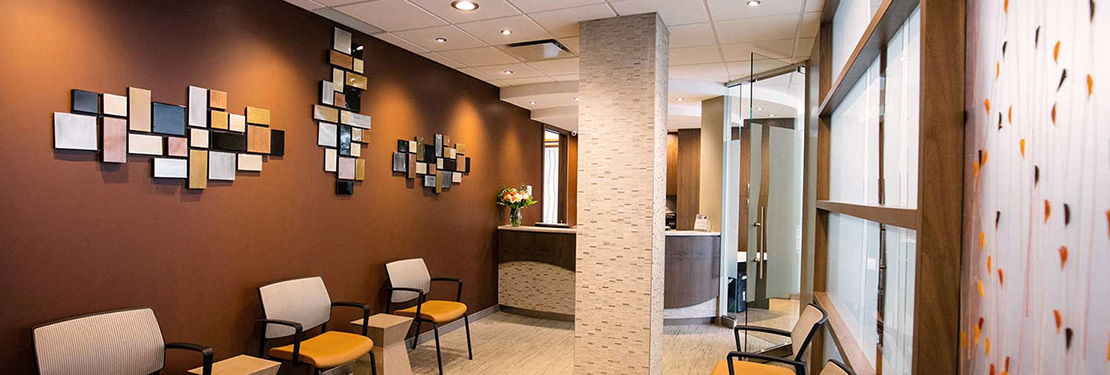
Bruxism, pronounced bruck-sizym, sounds like one of those words that could be a plot device in the latest sleeper-hit science fiction show. In reality, it’s a term for a medical condition that can affect people abruptly or gradually. The effects can add up and damage your teeth gradually, so they might not be noticed unless your dentist points it out, making regular dental exams that much more important.
What is Bruxism?
Simply put, bruxism means grinding your teeth, and some people with bruxism do it consciously or unconsciously. It might be intertwined with other conditions like sleep apnea (pauses in breathing) and snoring, and the severity of bruxism can vary.
More severe forms are easy to notice, but treatment can be long and difficult. Complications arising from bruxism can include jaw disorders, headaches, and pauses in breathing.
Long-term effects add up over time, and less severe forms of the condition can have a gradual negative effect if left untreated, wearing away the enamel, the shape, and the structural integrity of your teeth.
There’s a distinction between diurnal (daytime) bruxism and nocturnal (nighttime) bruxism. Anxiety, psychological stress, or a concentration habit might be the causes of awake bruxism or diurnal bruxism, whereas nocturnal bruxism or sleep bruxism might have multiple causes.
A common form of bruxism is nocturnal bruxism, which basically means that you grind your teeth at night, while you sleep. Typically, someone with nocturnal bruxism might unconsciously grind, clench, tap, or clap their teeth together.
Who Can Get Bruxism?
Bruxism can affect anyone, but it seems that biological sex plays a factor. Females might have higher incidence for awake bruxism, but the gap might instead be a result more of (emotional) personality factors than biological sex. Nocturnal bruxism shows no gender imbalance, however.
Up to 22.1% of adults experience bruxism. On average, 7.0% – 15.1% of children have bruxism. The statistics don’t give a good picture because they vary. Even with controls in place to account for variability, bruxism rates tend to fluctuate significantly.
In other words, there’s no way to know for sure whether you’re at risk of developing bruxism. In most cases, the more often you go to the dentist, the more likely you are to have your bruxism properly diagnosed.
Athletes may be at an increased risk for bruxism, due to the correlation between bruxism and competitiveness as a personality trait. With so many factors, from age, sex, genetics, existing disorders, diet (caffeine excess), and even personality traits — it’s difficult to find one specific cause, even in controlled studies.
Causes of Bruxism
When we look at the types of people who develop it, there’s a clear pattern. Bruxism rates seem to rise with aggressive, anxious, or emotional personality traits. But that doesn’t mean personality will always be the cause.
It’s best to talk to your dentist to narrow down the possible causes. Bruxism might be intertwined with other conditions as well, in some cases.
Bruxism, Cerebral Palsy & Medical Conditions
Cerebral palsy is a severe childhood disability resulting from a lesion in the brain. In patients with cerebral palsy, there is a high incidence of bruxism along with other oral issues like improper bite, higher plaque index, and delayed eruption (growing-in) of adult teeth. A dentist might have treatments that have to play nice with a cerebral palsy patient’s other medications and treatments.
Bruxism can also be a result of other medical conditions like ADHD, Autism, Trisomy 21, Major Depression, Fibromyalgia, OCD, and Parkinson’s Disease.
Bruxism & Certain Medications
Bruxism as a result of medications is called secondary bruxism. Often, the central nervous system stimulants, like the medications prescribed for ADHD, can impact the sleeping motor control of people taking these medications. Alcohol or recreational drugs can have a similar effect.
Symptoms of Bruxism
For awake bruxism, you might notice rough, swollen tissue on the inside of your mouth, where your teeth are effectively chewing your cheeks.
Your dentist can spot unusual wear and tear on the contact points of your teeth. If they seem more worn and chipped, then you might be tapping and grinding in your sleep (nocturnal bruxism).
You might experience pain from cracks and fractures forming in your teeth directly from a habit of clenching your teeth. Children whose adult teeth are intermixed with baby teeth might experience heavy tooth erosion because of the uneven bite they develop, even down to the pulp of the tooth!

Treatments for Bruxism
A doctor or dentist might have a variety of treatments in mind, ranging from stress management training to biofeedback, which involves conditioning the body to reshape its own unconscious habits. But the first line of defence often involves buffering the contact points in your bite.
Mouthguards & Nightguards
Nightguards are an excellent remedy for nocturnal bruxism since the dental appliance provides a buffer between the top teeth and bottom teeth while you grind teeth in your sleep.
Sports mouthguards are widely available at a very low cost, but the comfort level is typically low, and your brain has a tendency to treat a mouthguard with a looser fit as a foreign object. You might find you have trouble sleeping, and you’re likely to spit it out in your sleep.
Your dentist will be able to provide you with a custom nightguard made specifically to fit your mouth. The custom fit makes for more effective protection and undisturbed sleep.
Bruxism FAQs
Why do some people grind their teeth while they sleep?
As mentioned, your family history can hugely impact your risk factor for nocturnal bruxism. But many other factors, including personality and stress levels, can influence the incidence and severity of bruxism.
How do I know if I grind my teeth in my sleep?
You might know from experience, being woken up from your sleep by the gnashing of your own teeth. Many domestic partners notice bruxism in their partner’s sleep. Also, a dentist can spot unusual wear, chips, and cracks, so make sure you get regular cleanings and ask about it. There is a significant crossover between bruxism and TMD. Many people with bruxism develop TMD (also known as TMJ) which can lead to a variety of jaw problems and jaw pain
Is grinding your teeth bad?
Grinding your teeth puts unnecessary wear on the enamel layer, which is critical for protecting the soft and vulnerable layers of the tooth from acidic foods, saliva, and everyday wear and tear.
Can bruxism cause headaches?
Bruxism can cause headaches if the condition goes untreated, and can lead to TMD, a condition advancing from bruxism, resulting in further problems like headaches and jaw pain.
What to Do About Bruxism
Because bruxism, diurnal or nocturnal, can have multiple underlying causes, it’s best to talk to your dentist if you have any concerns. Your dentist will be able to evaluate your bruxism and recommend the appropriate treatment.







